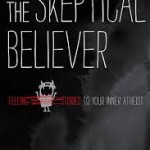 In a post last week, I asked you to think about the one or two biggest challenges you face to staying Christian. Including private emails, I got about 300 responses, many of them heartfelt and moving. Thanks for your courage and honesty!
In a post last week, I asked you to think about the one or two biggest challenges you face to staying Christian. Including private emails, I got about 300 responses, many of them heartfelt and moving. Thanks for your courage and honesty!
Although a wide range of challenges were mentioned and specifics naturally differ, I grouped them under five broad categories below. I hope this helps.
One request at this point: As we continue here, I want to remind you that this is not the place to defend the faith by offering counterarguments to what has been expressed, no matter how sincere. Neither is it the proper forum for former Christians to chime in and offer their opinions on how these challenges lead to one and only one “logical” conclusion.
There was a fair amount of this type of banter in the previous post (and in a follow-up), and such responses tend to dishonor those who relayed their experiences. I will be diligent in removing comments from this thread that I feel are driven by an apologetic motive in either direction. There are other websites that do this sort of thing. If you feel you really have something to say, ask the commenter for his/her email address and permission to send an email with your thoughts.
My intention for writing the post was not to undermine faith nor to set up issues for which I could give pat answers. I simply wanted to give people the space to express themselves in a spirit of trust and group support for the ultimate purpose of encouraging a continued walk of faith, however that might be configured in each person’s experience, community, or theological tradition.
To utter one’s deepest fears about their faith is for some only slightly less risky that buying heroin on a street corner, and such fear is too common a phenomenon in the various iterations of conservative Protestantism, i.e., for traditions rooted in the importance of detailed and absolute knowledge on a wide range of topics. For a variety of reasons, these “systems” are not viable for a considerable element of the Christian population. It is what it is. And, like any conflict–internal or otherwise–talking about it unloads a burden, a first step to at least getting some perspective.
I’ve numbered the main categories below, but these aren’t rankings (except for the first, I suppose, which seems to be the overarching stressor expressed). I am simply summarizing what I saw as the themes that came up. If you see an angle I am missing, by all means tell us.
I’d like to list my own top challenges at the end. Then, in a separate post (coming within a few hours–I don’t want these posts to be too long), I’d like to give you space to talk about why you stay on the path of Christian faith. This will only work if you limit your comments not to what others should or should not do, but how YOU navigate the challenges–either generally or specifically. Keep it personal. I’d like to begin that conversation by laying out some of my thoughts.
Anyway, here are the 5 main challenges I saw in your comments.
1. The Bible, namely inerrancy. This was the most commonly cited challenge, whether implicitly or explicitly, and it lay behind most of the others mentioned. The pressure many of you expressed was the expectation of holding specifically to an inerrant Bible in the face of such things as biblical criticism, contradictions, implausibilities in the biblical story, irrelevance for life (its ancient context), and the fact that the Bible is just plain confusing.
2. The conflict between the biblical view of the world and scientific models. In addition to biological evolution, mentioned were psychology, social psychology, evolutionary psychology, and anthropology. What seems to fuel this concern is not simply the notion that Scripture and science offer incompatible models for cosmic, geological, and human origins, but that scientific models are verifiable, widely accepted, and likely correct, thus consigning the Bible to something other than a reliable description of reality.
3. Where is God? A number of you, largely in emails, wrote of personal experiences that would tax to the breaking point anyone’s faith in a living God who is just, attentive, and loving. Mentioned were many forms of random/senseless suffering and God’s absence or “random” presence (can’t count on God being there).
4. How Christians behave. Tribalism, insider-outsider thinking; hypocrisy, power; feeling misled, sheltered, lied to by leaders; a history of immoral and unChristian behavior towards others (e.g., Crusades, Jewish pogroms). In short, practically speaking, commenters experienced that Christians too often exhibit the same behaviors as everyone else, which is more than simply an unfortunate situation but is interpreted as evidence that Christianity is not true–more a crutch or a lingering relic of antiquity than a present spiritual reality.
5. The exclusivism of Christianity. Given 1-4 above, and in our ever shrinking world, can Christians claim that their way is the only way?
These issues aren’t new. We all know that. They keep coming up, which is sort of the point. I understand that some may feel they have found final and universally applicable answers to these issues, but the fact that these issues don’t go away tells us something: either the answers aren’t all that persuasive or the answers aren’t getting to where they are needed.
Whatever the reason, in my opinion, opening up and talking about these things with others also on the Christian path should not be the exception but the rule.
As for my own challenges, I resonate with all of these on some level. My personal top challenges–those nagging back seat issues that keep forcing their way to the front seat–are: various issues of intellectual implausibility, few and far between “God moments,” random suffering, and the fact that Christians can be complete jerks to each other and everyone else (I being chief among them, to borrow Paul’s words).
“Implausibility” is a word that a couple of the commenters used (also “plausibility structure”), and it captures well what I am thinking here. So as not to be misunderstood, let me elaborate on just this first point. The issue is not really the miraculous nature of Christianity, but things like: Heaven portrayed as “up there” and hell beneath; if Jesus is coming back to judge the world, what’s keeping him, especially since NT authors (Paul, Revelation) seemed to think this would happen very soon.
For many of you, I know I’m singing to the choir.











